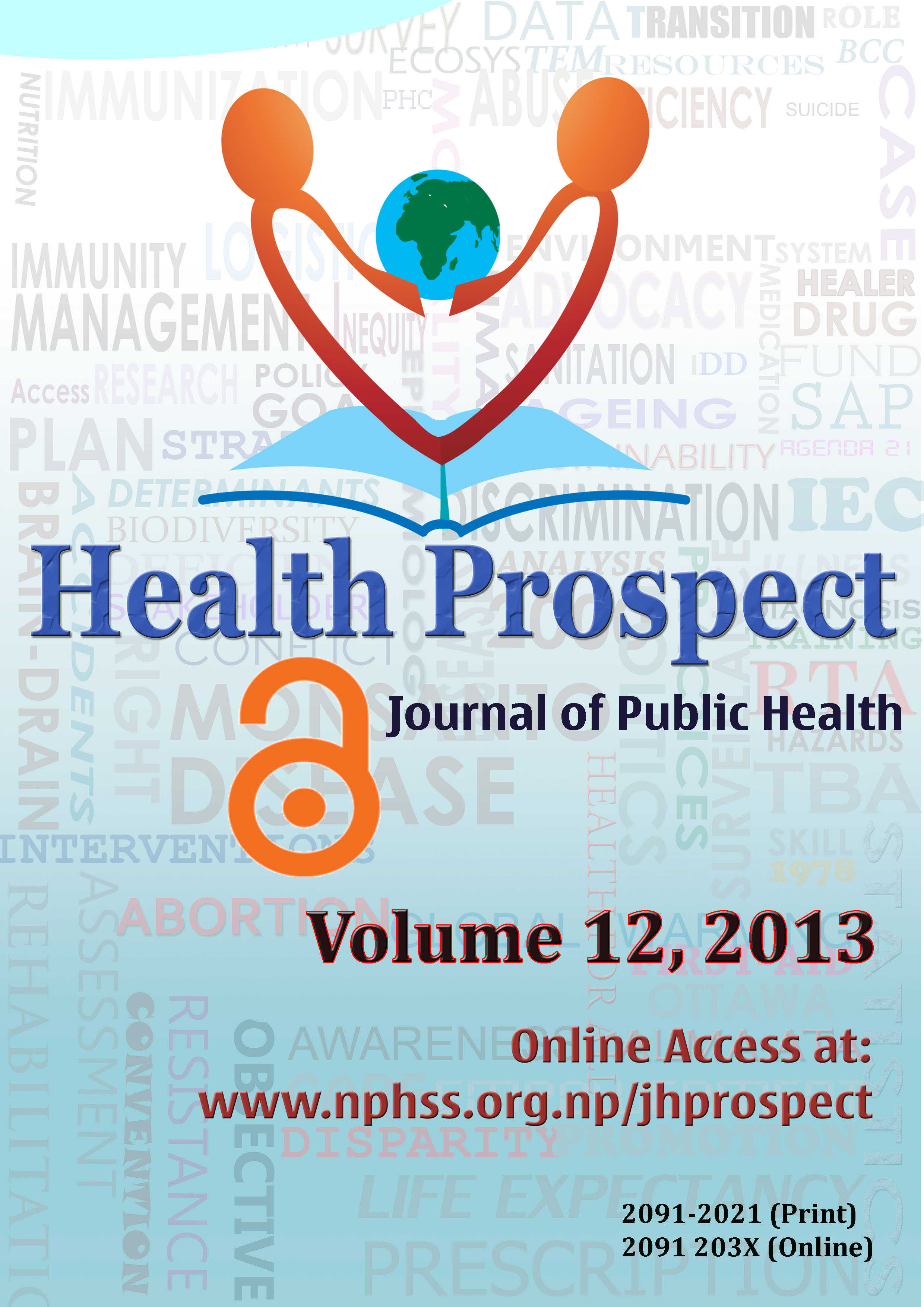User-provider relations pertaining to health care delivery in Jumla district
DOI:
https://doi.org/10.3126/hprospect.v12i2.9870Keywords:
cost recovery, ethnography, health services, medical anthropology, Nepal, social medicine, user feesAbstract
Background Nepal’s health policy making and programming shifted over the past six decades in tune with international milieu. After 2006 revolution, radical new leadership of health ministry wrote health as a fundamental right in the interim constitution and scrapped hitherto existing user fees in peripheral health facilities. This work aimed to understand user-provider interaction at facility and community setting while people attempt utilising fee-less health care.
Methods We used key informant interviews to explore the mechanism of health care delivery and general reality of Jumla districtin north-west Nepal. We used semi-structured interviews with respondents at both the providing and receiving sides. We asked open ended questions and used answers to preceding questions to generate new questions around the area of discussion.
Results Health care machinery in Jumla struggled between constrained supply and elevating demand side factors. District hospital endured this challenge more than primary health care centre and health posts studied. User-provider relations were more turbulent in the hospital where targeted approach to fee removal was effected, than other facilities where charges were abolished altogether. Users and providers had their own side of the story, exemplified by experiences in accessing and delivering fee-removed health care.
Conclusion We conclude that user-provider dynamics manifest in Jumla originate elsewhere. Health care programmes are crafted without people’s meaningful participation. Prescriptions trickle down all the way from international health rings to rural villages like that of Jumla – through national systems – founded on economic and political interests as contrasted to citizen’s legitimate needs. We recommend further ethnographic work to fully explore and address factors that determine user-provider relations at point of health care use.
DOI: http://dx.doi.org/10.3126/hprospect.v12i2.9870
Health Prospect Vol.12(2) 2013: 31-36




